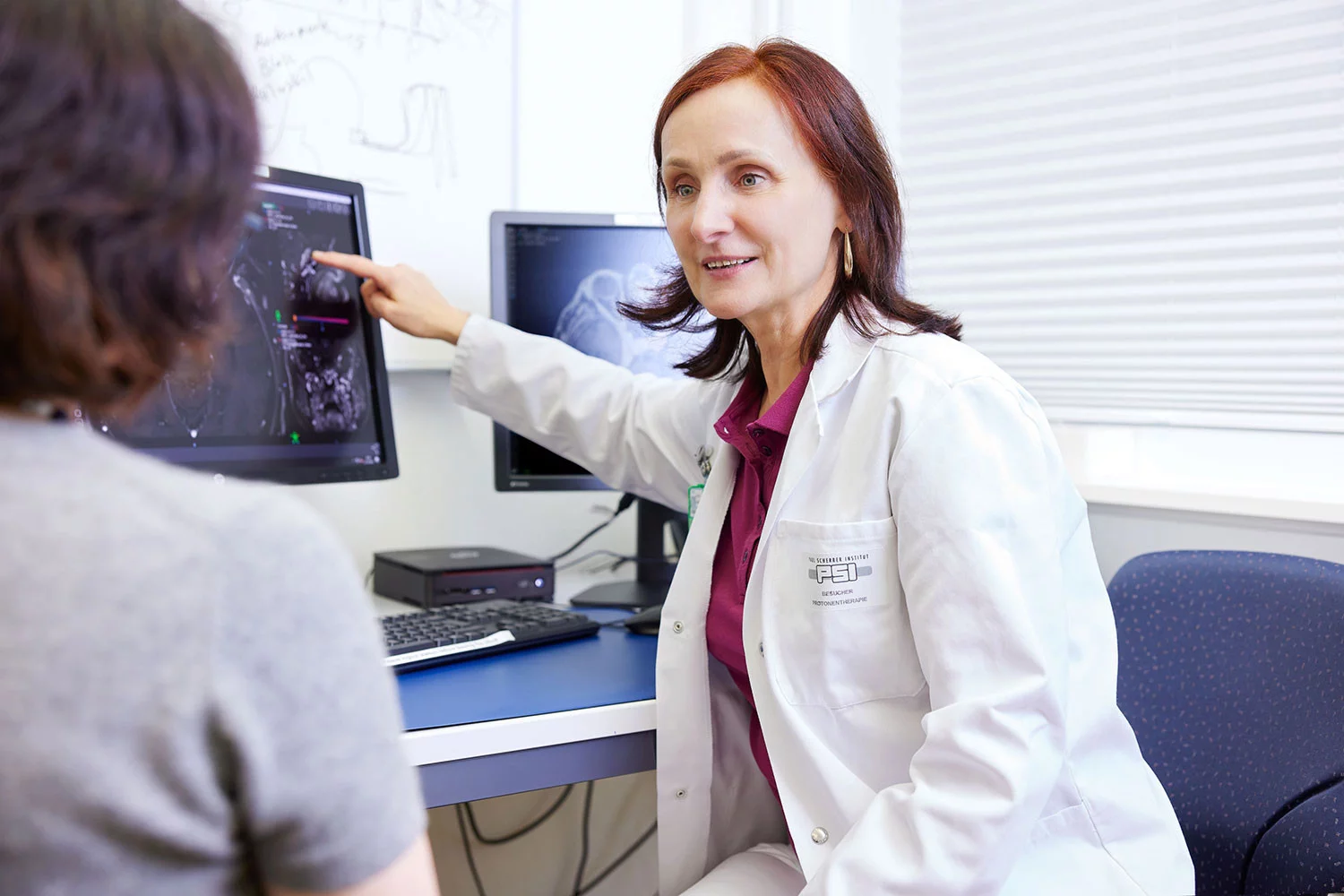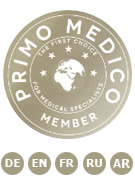A radiation oncologist analyses the individual tumour situation and decides which patients are eligible for proton therapy. They are subsequently responsible for therapy planning and implementation, as well as patient care. As a senior physician they are also in charge of supervising and training assistant radiation oncologists.
Which patients are eligible for radiation treatment at CPT?
We do not carry out irradiation on all types of cancer, but only on those likely to derive considerably greater benefit from this form of treatment than from traditional radiation. Our patients come from Switzerland and abroad. Since proton therapy has comparatively few side effects and barely affects healthy tissue, it is especially suited for the treatment of children. This is why more children receive radiation treatment here at CPT than in any other radiation oncology clinic in Switzerland.
How does proton therapy differ from traditional radiation therapy?
Both X-rays and proton radiation have the same effect on tumour cells: they damage the genetic material located in the nucleus of the cancerous cell so that the cells are unable to proliferate and subsequently die. Since our proton irradiation is carried out with pinpoint accuracy, the surrounding healthy tissue suffers less damage, thereby minimising the risk of developing long-term side effects. In some cases, this enables us to increase the radiation dosage within the tumour and this, in turn, improves recovery rates.
How does the CPT differ from a hospital?
Most treatments are carried out on an outpatient basis. If it is necessary to be treated as an inpatient, patients are accommodated in neighbouring clinics and are driven here once a day to receive radiation treatment.

